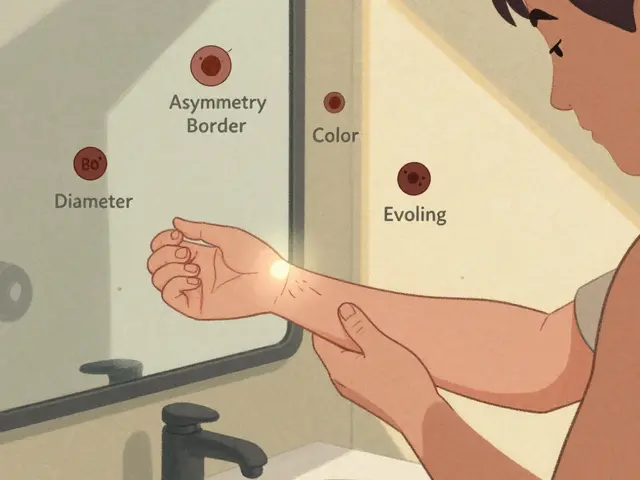Mind Body Connection: How Thoughts, Feelings, and Physical Health Interact
When you hear mind body connection, the two‑way relationship between mental states and physical health, you might picture meditation or yoga. In reality, it runs through everyday triggers: Stress, the body’s alarm response to perceived threats spikes cortisol, raises blood pressure, and can inflame joints, which is why chronic anxiety often shows up as headaches or rheumatoid pain. Sleep, the nightly restorative cycle that balances hormones and clears brain waste is equally critical; lack of deep sleep disrupts serotonin, fuels irritability, and weakens immune cells, making you more vulnerable to infections and even heart disease. Nutrition, the intake of nutrients that power cells and build neurotransmitters influences mood directly—omega‑3 fatty acids, B‑vitamins, and magnesium support calm, while processed sugars can trigger spikes in anxiety. Together, these three pillars—stress, sleep, nutrition—form the core triangle that illustrates the mind body connection in daily life. Understanding how one side shifts the whole system lets you intervene early, whether you’re battling motion sickness‑related anxiety or managing rheumatoid arthritis flare‑ups.
Practical Ways the Mind Body Connection Shows Up
Seeing the mind body connection in action means spotting patterns: a night shift that screws up circadian rhythm often leads to higher cortisol, which then aggravates arthritis pain and fuels depressive thoughts in teens. Smoking, for example, illustrates a toxic loop—nicotine spikes adrenaline, narrows blood vessels, and promotes inflammation, which feeds both heart disease and heightened stress levels. Conversely, regular exercise breaks this cycle; physical activity releases endorphins, improves vascular health, and reduces cortisol, proving that movement is a direct bridge between mental calm and bodily resilience. When you combine a balanced diet with mindfulness breathing, you cut through the feedback loop that turns anxiety into stomach upset or tension headaches. Even simple changes—like swapping a pillow that causes sleep wrinkles for a supportive ergonomic one—can improve sleep posture, lower neck strain, and reduce cortisol spikes, showing how tiny physical tweaks ripple into mental well‑being.
Below you’ll find a curated set of articles that dive deeper into each of these links. From managing motion sickness‑related anxiety to tackling rheumatoid arthritis pain, from smoking’s impact on vascular health to strategies for better sleep and stress reduction, the collection gives you actionable insights and evidence‑based tips. Explore the posts to see how the mind body connection shapes treatments, lifestyle tweaks, and prevention tactics across a wide range of conditions.

- Sep 28, 2025
- Posted by Cillian Osterfield
How Stress Impacts Fertility: The Mind‑Body Connection Explained
Explore how chronic stress disrupts hormones, affects ovulation and sperm quality, and learn practical mind‑body strategies to boost fertility.
Categories
- Health and Wellness (72)
- Medications (69)
- Health and Medicine (28)
- Pharmacy Services (12)
- Mental Health (9)
- Health and Career (2)
- Medical Research (2)
- Business and Finance (2)
- Health Information (2)
Latest Posts
©2026 heydoctor.su. All rights reserved





